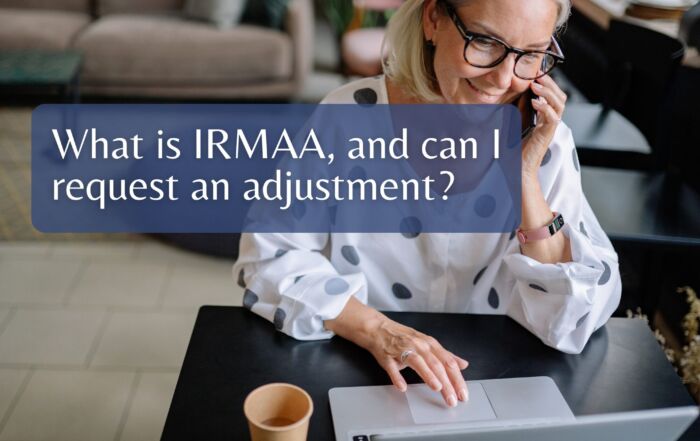
Are Alternative Investments Right For You?
On this episode of A Wiser Retirement Podcast, Casey Smith and Brad Lyons, CFP® talk about which alternative investment may be right for you. They explain what an alternative investment is, the characteristics of limited partnerships, private equity, and how to properly utilize them in your portfolio. It is important to evaluate which one is the best fit for you and the amount of risk you are willing to undertake.
Listen on Apple Podcasts or watch on YouTube:
SUMMARY:
Risks of Alternative Investments
Adding alternative investments to your portfolio can come with some hefty risks. The main downside of alternative investments is they are largely unregistered and unregulated, which make bad actors a commonality. There is also known to be some fraud in alternative management. To avoid these risks, it is important to tread lightly, do your due diligence, and select reputable companies.
What is an Alternative Investment?
Alternative investments are NOT traditionally traded stocks, bonds or cash. Instead, they are real estate, timber, forestry, private equity, hedge funds, commodities, collectables, cryptocurrencies, and much more. The four main types of alternative investments are private equity, real estate, commodities, and hedge funds. Having patience with these are pertinent since they have a lifespan of 10-12 years. The upside of this long lifespan is that it gives the investment manager a longer period to evaluate the investments they want to make, which gives you the ability to worry less about the next quarter.
Characteristics of Limited Partnerships
The main unique characteristic of alternative investments in limited partnerships is their high fee structures. Fees can get as high as 2% and the general manager may include interest for all profits made. Highly extensive legal contracts are usually drafted up as well, which require legal review. Aside from the high fee structure, limited partnerships can be beneficial if you don’t have the resources to invest yourself and if you are hoping to get outsized returns or returns from different asset classes. Before going into a limited partnership, note they are unregistered by the Securities and Exchange Commission (SEC) and not required to report returns, so remember to do your due diligence!
Accredited Investors
With a limited partnership, it is important to understand that there are requirements when it comes to who can participate in the investment. These requirements set by the SEC for “accredited investors” are in the best interest of the individual. Accredited investors have an income requirement of $200,000/year and a net worth of over $1,000,000, excluding the value of their home. These qualifications help reduce risk within limited partnerships, should things go wrong.
Private Equity Investing
Private equity investing usually occurs during a company’s start up or transition phase. Watching out for a new owner can be beneficial when looking to invest during one of these phases. It is important to understand private equity can be real estate and investments in private or public companies. Knowing the series of events that occur within private equity can allow you to decide if it is the right investment for you. Keep in mind private equity is priced on a quarter-to-quarter basis, so it takes patience to see results.
Choosing the Amount to Invest
Start with thinking of how much you are willing to risk. The percentage of alternative investments in your portfolio must be enough to move the needle, 1% or 2% won’t do anything. A more reasonable amount would look more like 10%, and no more than 20% for a private investor. Knowing that information, pick the percentage that is right for you and evaluate how they will fit into your portfolio. High minimums are common when it comes time to invest, but it is important to understand a diversified portfolio takes time.
Optimizing Your Portfolio
Start with evaluating the return and risk of each alternative investment to observe the max benefit. You need to look for the right mix of assets needed to create an optimized portfolio. Choosing to invest in short term treasuries and commodities may reduce your portfolio’s volatility compared to the market. It is important to understand alternative investments may come with some risks, but the reward can be worth it. They have the power to diversify your portfolio and can provide a hedge against inflation.
The Best Alternative Investment
Real estate, by far, can be considered the best alternative investment because you receive income while holding it, there is price appreciation, and non-correlated return. The other options aren’t necessarily bad. Since everyone has unique circumstances, you should evaluate each opportunity as it comes to you and whether it fits into your portfolio.
Download our white paper on “3 Ways to Grow and Protect Your Portfolio”
TIMESTAMPS:
0:00 Intro
1:45 Risks of Alternative Investments
4:41 What is an Alternative Investment?
6:45 Characteristics of Limited Partnerships
11:11 Accredited Investors
13:11 Private Equity
22:10 Choosing the Amount to Invest
26:58 Optimizing Your Portfolio
41:16 The Best Alternative Investment
LINKS:
Learn more about Casey Smith and connect with him on Twitter.
Learn more about Brad Lyons.
Learn more about Matthews Barnett.
CONNECT:
Twitter, Instagram, Facebook, LinkedIn, and YouTube.
Learn more about A Wiser Retirement podcast and access previous episodes.
Share This Story, Choose Your Platform!
Wiser Wealth Management, Inc (“Wiser Wealth”) is a registered investment adviser with the U.S. Securities and Exchange Commission (SEC). As a registered investment adviser, Wiser Wealth and its employees are subject to various rules, filings, and requirements. You can visit the SEC’s website here to obtain further information on our firm or investment adviser’s registration.
Wiser Wealth’s website provides general information regarding our business along with access to additional investment related information, various financial calculators, and external / third party links. Material presented on this website is believed to be from reliable sources and is meant for informational purposes only. Wiser Wealth does not endorse or accept responsibility for the content of any third-party website and is not affiliated with any third-party website or social media page. Wiser Wealth does not expressly or implicitly adopt or endorse any of the expressions, opinions or content posted by third party websites or on social media pages. While Wiser Wealth uses reasonable efforts to obtain information from sources it believes to be reliable, we make no representation that the information or opinions contained in our publications are accurate, reliable, or complete.
To the extent that you utilize any financial calculators or links in our website, you acknowledge and understand that the information provided to you should not be construed as personal investment advice from Wiser Wealth or any of its investment professionals. Advice provided by Wiser Wealth is given only within the context of our contractual agreement with the client. Wiser Wealth does not offer legal, accounting or tax advice. Consult your own attorney, accountant, and other professionals for these services.





